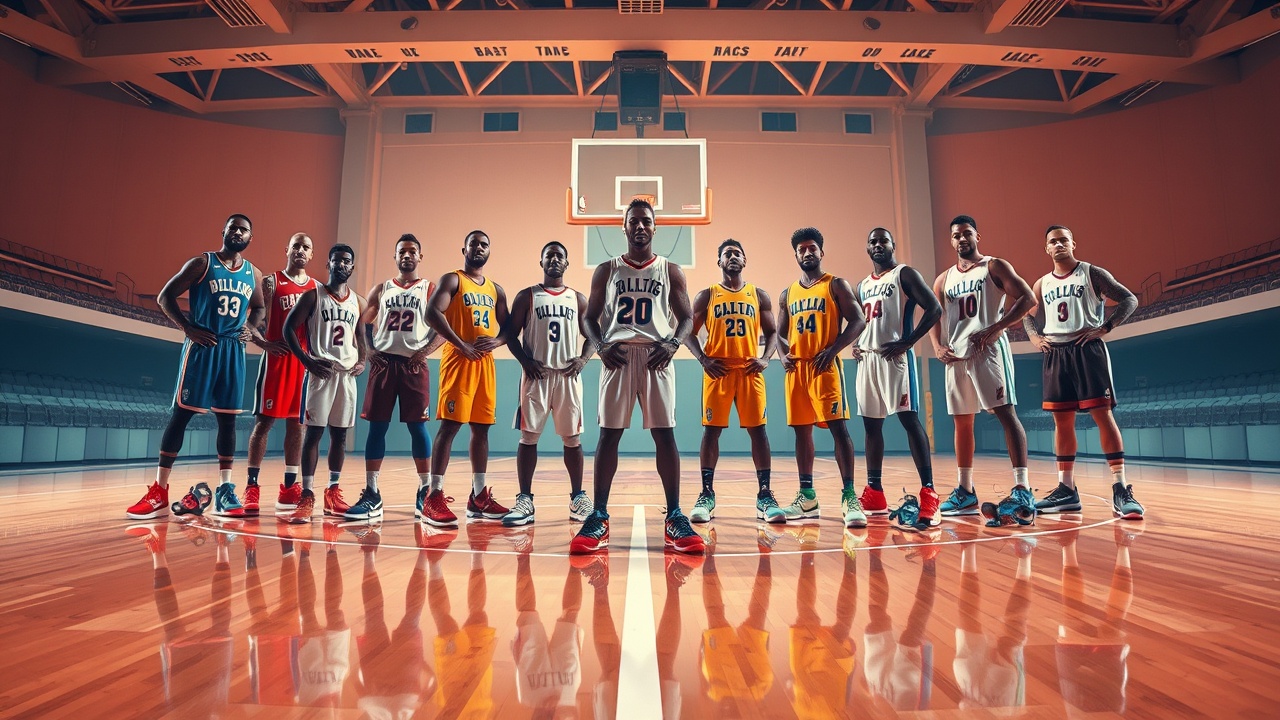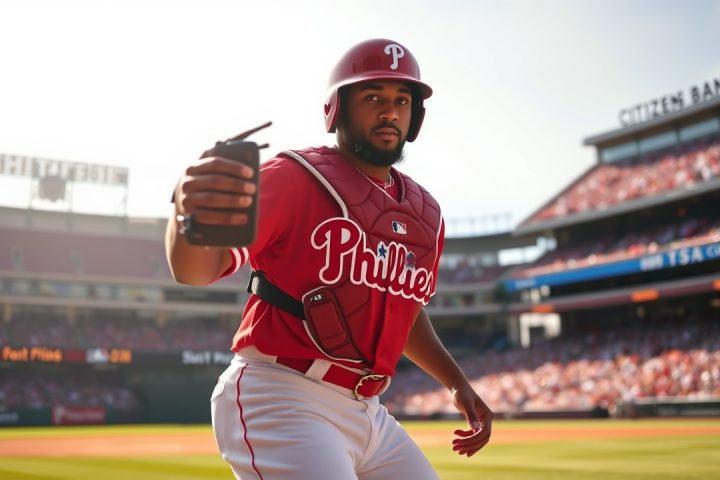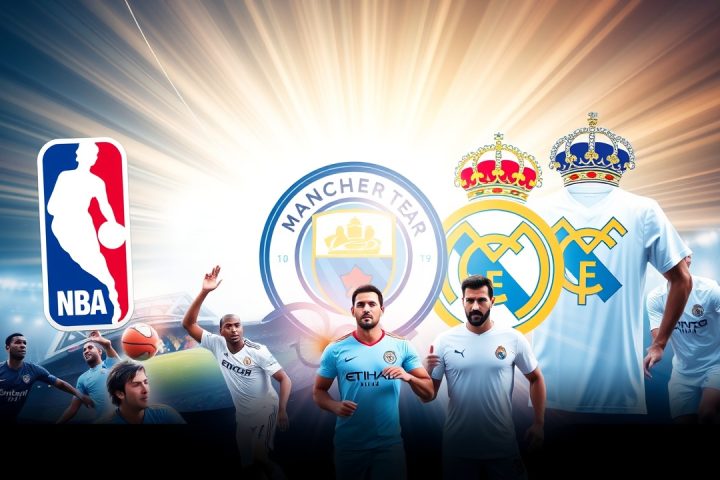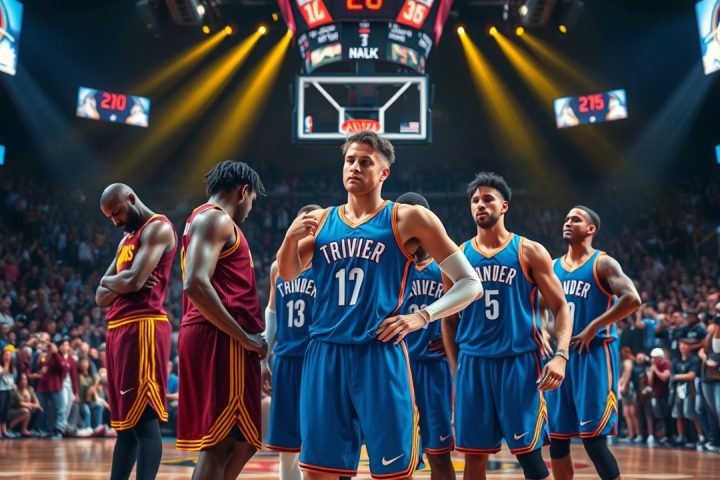The NBA Finals and Footwear Trends
The NBA Finals represent a pivotal moment in basketball, not only for the teams competing but also for the footwear that adorns the players’ feet. Historically, Nike has dominated this platform, showcasing its extensive lineup of elite athletes and merchandise through the iconic Jordan and Kobe Bryant lines. The brand’s presence is ubiquitous, as it serves as the official uniform partner of the league, ensuring its logo is visible on every player, including their socks.
Emerging Brands and Signature Sneakers
As the 2025 NBA Finals approach, however, there’s an unmistakable shift in the spotlight, with athletes from smaller-market teams seizing the opportunity to introduce their own signature shoes from less mainstream brands. Tyrese Haliburton of the Indiana Pacers debuted his signature sneaker, the Hali 1, from Puma in Game 1 of the Finals, marking a significant milestone in his career. Meanwhile, league MVP Shai Gilgeous-Alexander represents Converse, a Nike subsidiary, showcasing the diversity of footwear options available to players today.
For decades, Nike and Adidas have led the conversation around basketball sneakers, largely due to groundbreaking partnerships with superstars such as Michael Jordan and others like Damian Lillard and James Harden. As more athletes seek greater agency within their contracts, they are increasingly gravitating towards emerging brands or launching their own lines. Haliburton, after knocking down a critical game-winning shot, took the stage with his Puma sneakers, a moment he celebrated on social media by referencing a famous Air Jordan tagline.
The Evolution of Signature Shoe Culture
Throughout basketball history, signature shoes have been linked with legacy—figures like Bryant, Iverson, and Durant leading the way. Traditionally, securing a signature shoe deal was seen as a triumph, often reliant on major brands like Nike or Adidas. However, players are now exploring alternative pathways to ownership and creativity in design.
Puma, eager to re-establish itself in the competitive sneaker market, has turned to athletes like Haliburton adept at blending nostalgia with modern appeal. Haliburton expressed enthusiasm for joining Puma, noting that the brand’s reputation preceded his decision, and he felt a strong connection upon meeting the team there. Additionally, players like Kyrie Irving have transitioned from established names like Nike to newer brands, such as Anta, where he holds the title of chief creative officer, allowing him to retain control of his brand identity and legacy.
Challenging the Status Quo
Likewise, Jaylen Brown has challenged the status quo in the sneaker industry by founding his own company, 741 Performance. This move emphasizes the desire of some players to cultivate a brand independent of the corporate giants, ensuring both control and creative direction. Brown has been proactive in educating the next generation about the intricacies of ownership within the sneaker business.
Cleveland Cavaliers’ Isaac Okoro shared similar sentiments after joining Holo, a brand that welcomed his input throughout the design process, enhancing the product’s authenticity and personal connection for him. He expressed the value of being engaged in the creative discussions that culminated in his signature sneaker.
A Historic Perspective
Historical footprints in the sneaker market showcase that this trend of independent thinking is not novel. In the 1980s, players like James Worthy and Hakeem Olajuwon opted for smaller brands like New Balance and Etonic in a landscape dominated by Converse and Nike. Players today, such as Steph Curry with Under Armour and Kawhi Leonard with New Balance, mirror this willingness to look beyond tradition.
With the re-emergence of brands like Reebok, now under Authentic Brands Group, and Converse’s efforts to regain relevance, the landscape continues to evolve as players leverage their market power. Both brands are keen on signing rookie talents who resonate with younger demographics, much like Haliburton has done with Puma.
Gender-Inclusivity in Sneaker Culture
Cameron Brink and upcoming talents in the WNBA signify how this movement is gender-inclusive, with young female athletes also being sought after by brands to diversify their portfolios. Reinventing the sneaker game ultimately highlights the increasing autonomy athletes now exercise in a market that once seemed overwhelmingly owned by a select few giants.




